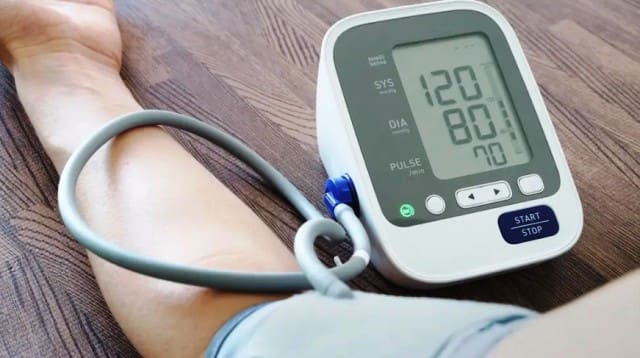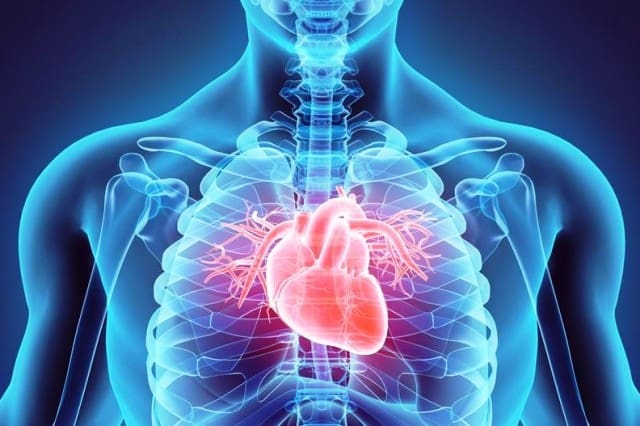
Drinking enough water is important for maintaining adequate hydration, which promotes optimal functioning of all body systems, including the heart. It helps transport nutrients, regulate body temperature, cushion joints and eliminate waste. Adequate hydration can also indirectly contribute to heart health by supporting general well-being
How Does Drinking Water Reduce Heart Disease?
Drinking water is vital to overall health and helps reduce the risk of heart disease in a number of ways:
Hydration:
Adequate hydration is essential for cardiovascular health. Drinking enough water helps maintain the proper balance of electrolytes in the body, including sodium and potassium. This balance is essential for optimal heart function and helps regulate blood pressure. Chronic dehydration can lead to an increased risk of high blood pressure, a major risk factor for heart disease.
Blood Viscosity:
Water helps keep blood sticky or thick. Staying hydrated keeps the blood from getting too thick, reducing the risk of blood clots that can lead to a heart attack or stroke. Thicker blood makes it harder for the heart to pump, which can put strain on the cardiovascular system.
Blood Pressure Regulation:
Drinking water can help regulate blood pressure. Adequate hydration supports normal blood volume by allowing the heart to pump blood more easily around the body. This can help prevent hypertension (high blood pressure), which is a significant risk factor for heart disease.
Cholesterol Management:
Drinking water may indirectly help control cholesterol levels. If you drink enough fluids, it supports optimal kidney function. The kidneys play a key role in filtering waste and toxins from the blood, including excess cholesterol. Proper hydration helps the kidneys perform their functions effectively, helping to control cholesterol levels and reducing the risk of atherosclerotic plaques forming in the arteries.
Weight Control:
Water is an essential part of a healthy diet and weight control. Choosing water over sugary drinks can help reduce overall calorie intake, promote satiety, and help maintain a healthy body weight. Obesity is a risk factor for heart disease, and maintaining a healthy weight can help reduce your risk of heart disease.
It should be noted that while drinking water is beneficial for heart health, it is only part of a healthy lifestyle. Other factors such as a balanced diet, regular physical activity, not smoking and managing stress are also important in reducing the risk of heart disease. If you have specific concerns or have a history of heart disease, it is always best to see a doctor for individual advice.

How Does Insufficient Hydration Impact Heart Health?
Poor hydration can have several effects on heart health. Here are some possible effects:
Increased Stress on the Circulatory System:
Dehydration can lead to a reduction in blood volume, resulting in less blood circulating around the body. As a result, the heart has to work harder to pump the reduced amount of blood, leading to an increase in heart rate and blood pressure. This extra stress on the cardiovascular system can potentially contribute to the development of heart problems over time.
Risk of blood clots:
Not drinking enough fluids can cause the blood to thicken, making it more susceptible to clots. Blood clots can be dangerous because they can block the blood vessels that supply the heart, leading to a heart attack or other cardiovascular complications.
Impaired physical performance:
Dehydration impairs physical performance and endurance. During exercise, dehydration can lead to an accelerated heartbeat and decreased blood flow to working muscles. This can make physical activity difficult and put a strain on your heart.
Electrolyte Imbalances:
Proper hydration is important to maintain the balance of electrolytes such as sodium, potassium and magnesium in the body. These electrolytes play a key role in maintaining heart rhythm and function. When you’re dehydrated, electrolyte imbalances can occur, which can lead to abnormal heart rhythms (arrhythmias) and other heart problems.
Blood pressure regulation:
Sufficient fluid intake helps to regulate blood pressure. When the body is dehydrated, blood vessels can constrict, causing blood pressure to rise. Over time, persistent high blood pressure can contribute to the development of cardiovascular disease.

What are The benefits of Water to the Heart?
Water plays a vital role in maintaining overall health, including heart health. Here are some of the key benefits of water for heart health:
Hydration:
Adequate hydration is essential for heart health. Dehydration can cause the blood to thicken, increasing the risk of blood clots and heart problems. Drinking enough water helps keep the blood sticky, which allows for smoother circulation and reduces pressure on the heart.
Blood Pressure Regulation:
Chronic dehydration can lead to high blood pressure, which is a major risk factor for heart disease. Drinking enough water helps maintain normal blood pressure and reduces the risk of cardiovascular problems.
Oxygenation:
Water is an essential component of blood and adequate hydration ensures adequate blood volume. Adequate blood volume helps carry oxygen and nutrients to the heart muscle so it can function optimally.
Electrolyte Balance:
Electrolytes such as sodium, potassium and magnesium play a key role in maintaining heart rate and muscle function. Drinking water helps maintain the balance of these electrolytes, thereby ensuring proper functioning of the heart’s electrical system.
Weight Control:
Water can help with weight control and maintaining a healthy weight is beneficial for heart health. Drinking water before meals can promote feelings of fullness, which leads to decreased calorie intake. Plus, water is zero-calorie, making it a popular alternative to sugary drinks that contribute to weight gain and heart disease.
Physical Performance:
Adequate hydration during exercise is essential for optimal heart function. Water helps regulate body temperature, lubricate joints, and transport nutrients to working muscles. Proper hydration during exercise allows the heart to pump blood more efficiently, which promotes endurance and reduces the risk of cardiac stress.
Waste Removal:
Water helps remove toxins and waste from the body, including the by-products of metabolism. Efficient waste disposal is important to prevent the accumulation of harmful substances that can affect heart function and overall cardiovascular health.
It Is important to remember that while water offers various heart health benefits, maintaining an overall healthy lifestyle is vital. These include eating a balanced diet, getting regular exercise, managing stress, and avoiding harmful habits like smoking and excessive alcohol consumption. If you have particular concerns about your heart health, it’s always best to see a doctor.
Staying hydrated by drinking enough water throughout the day is important to maintaining heart health. Specific water needs can vary based on factors such as age, activity level, climate, and overall health. It is therefore advisable to consult your doctor for individual advice.

Is Excessive Water Consumption a Risk to Heart Health?
Excessive water intake, also known as water poisoning or water intoxication, can actually pose a risk to heart health. While staying hydrated is important, consuming excessive amounts of water over a short period of time can upset your body’s electrolyte balance, including sodium. This condition is called hyponatremia and occurs when the concentration of sodium in the blood decreases too much.
Hyponatremia can affect the body in a number of ways, including the heart. Sodium is needed for cells, especially those in the heart, to function properly. When sodium levels drop too low, there can be an imbalance in the body’s fluid levels, causing cells to swell. For heart cells, this swelling can disrupt their normal electrical signaling, potentially leading to an irregular heartbeat (arrhythmia) and, in severe cases, cardiac arrest.
It should be noted, however, that hyponatremia due to excess water intake is relatively uncommon and mostly occurs in extreme cases, such as in endurance athletes who drink excessive amounts of water without replenishing electrolytes. For most people, maintaining a balanced and moderate fluid intake is generally safe and beneficial for heart health.
If you have concerns about your water intake or your heart health, it’s always a good idea to consult a doctor who can provide you with personalized advice tailored to your specific situation.
